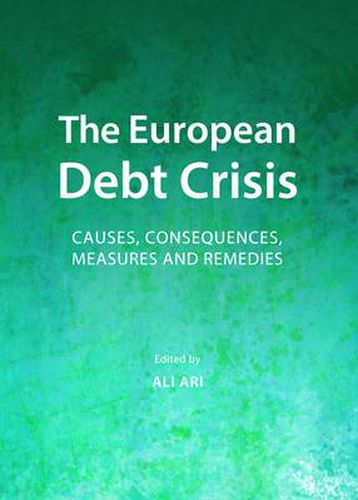Readings Newsletter
Become a Readings Member to make your shopping experience even easier.
Sign in or sign up for free!
You’re not far away from qualifying for FREE standard shipping within Australia
You’ve qualified for FREE standard shipping within Australia
The cart is loading…






The recent global financial crisis is considered to be the most severe crisis which has led to a synchronised recession since the Great Depression in the 1930s. Europe is the most affected region in the world as a result of this crisis, and, as such, the sovereign debt crisis remains the most important issue in the Eurozone and threatens the future of the EU.This book provides answers, from both theoretical and empirical perspectives, to the following questions: What caused the global and European debt crises? What are the consequences of these crises? Why, despite the implementation of several policy measures, are these crises still affecting the world economy? What are the solutions to end the on-going crisis situation in the Eurozone? How can future crisis episodes in the world economy be prevented?Eleven quality papers from both academics and professionals are included in this volume, each of which provides a significant source, reference, and teaching supplement for researchers, policymakers and advanced graduate students. In addition, the papers collected here will also provide supplementary readings for advanced courses for graduate students in economics and European studies.
$9.00 standard shipping within Australia
FREE standard shipping within Australia for orders over $100.00
Express & International shipping calculated at checkout
The recent global financial crisis is considered to be the most severe crisis which has led to a synchronised recession since the Great Depression in the 1930s. Europe is the most affected region in the world as a result of this crisis, and, as such, the sovereign debt crisis remains the most important issue in the Eurozone and threatens the future of the EU.This book provides answers, from both theoretical and empirical perspectives, to the following questions: What caused the global and European debt crises? What are the consequences of these crises? Why, despite the implementation of several policy measures, are these crises still affecting the world economy? What are the solutions to end the on-going crisis situation in the Eurozone? How can future crisis episodes in the world economy be prevented?Eleven quality papers from both academics and professionals are included in this volume, each of which provides a significant source, reference, and teaching supplement for researchers, policymakers and advanced graduate students. In addition, the papers collected here will also provide supplementary readings for advanced courses for graduate students in economics and European studies.